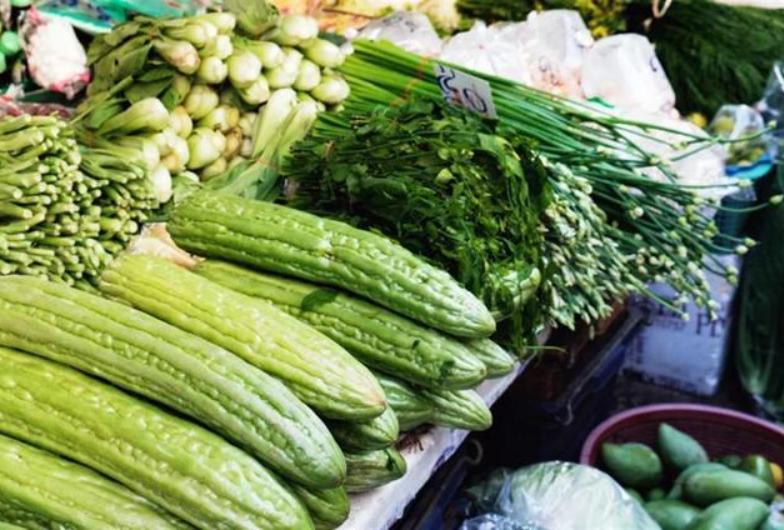
Australia's current vegetable consumption and prices are declining, the country's latest vegetable industry research report shows that the recent Australian vegetable consumption and prices have been sluggish, coupled with soaring planting costs, vegetable planting is facing greater challenges. Due to high costs, low returns and other reasons, 34% of farmers in the country are considering giving up vegetable farming. They also called on the authorities to promote healthy eating among the public, reduce the consumption of processed foods and increase the intake of vegetables to help the vegetable farming industry cope with the challenge of rising costs.
More than 30 per cent of Australia's vegetable growers are considering a career change as a result of the consumer downturn, which has had a multi-faceted impact on the business sector. First, the impact of the relevant industrial chain, due to insufficient consumption, Australia's vegetable market has an imbalance between supply and demand. This has led to a further fall in vegetable prices, adding to farmers' woes. This will not only affect their livelihoods, but may also force them to switch from farming to other industries, and as farmers switch, the supply of vegetables will decrease, potentially leading to fewer varieties on the market and higher prices. This will put pressure on retailers, caterers and food processors that rely on vegetable supplies. Unsalable vegetables may lead to fluctuations in raw material prices, affecting the cost control and profitability of food processing enterprises. The change of farmers will promote the adjustment of vegetable industry chain, including the optimization of planting structure, the expansion of sales channels and the strengthening of supply chain management. This will promote the cooperation and integration of upstream and downstream enterprises in the industrial chain to adapt to changes in market demand.
The second is the impact on consumers, with only about 6.5 per cent of Australia's population of more than 26 million eating the recommended five standard 75g servings of vegetables a day. Most people eat less than two standard servings of vegetables a day, far below what is recommended for a healthy diet. The reduced availability of vegetables will limit the range of choices for consumers and may lead consumers to turn to other food alternatives, such as fruit, meat, etc. Australians' eating habits may be changing, leading to less demand for vegetables. This may be related to a fast-paced lifestyle, a preference for processed foods, and a lack of health awareness. This will affect the diet structure and health level of consumers. As vegetable prices rise, consumers will become more price sensitive. They may pay more attention to price offers, promotions, and products that are cost-effective. This will prompt retailers and suppliers to strengthen price competition and marketing strategy adjustment.
Third, the impact of the sales industry, vegetable sales directly led to supermarkets, farmers markets and other retail channels sales decline. These channels rely on vegetable sales to drive overall performance, so slow sales of vegetables will have a direct impact on their revenue. Due to volatile raw material prices and sluggish sales, retailers and enterprises will face the problem of overstocking of vegetables. This not only increases storage costs, but may also lead to a decline in vegetable quality, further affecting sales. To boost sales, retailers may resort to price-cutting strategies. However, this could lead to a squeeze on profit margins and could even trigger a price war, adversely affecting the entire retail industry.
Fourth, economic pressure, with the change of farmers and consumer demand changes, the market competition will be more intense. Unmarketable vegetables may lead to a reduction in employment opportunities related to vegetable cultivation, sales, processing, etc., and increase employment pressure on society. Agriculture is an important part of the Australian economy. Unsalable vegetables may have a negative impact on overall economic growth, leading to a slowdown in economic growth. Faced with the problems caused by slow vegetable sales, the government may need to adjust relevant policies to support agricultural development, promote consumption and stabilize economic growth.
To sum up, Australian enterprises need to pay close attention to changes in market dynamics and consumer demand, strengthen brand building, improve product quality and service level, in order to meet the challenges of market competition and seize business opportunities. At the same time, the government also needs to introduce relevant policies to support the development of the vegetable industry and consumers' demand for healthy eating.

Driven by the Trump administration's push to relax financial regulations and the recovery of investment banking business, the market value of the six major banks in the United States has cumulatively increased by approximately 600 billion US dollars by 2025.
Driven by the Trump administration's push to relax financia…
On Christmas evening, U.S. President Trump posted on social…
According to multiple foreign media reports, the recent fin…
The middle class, once regarded as the cornerstone of Ameri…
On December 19th local time, the US military launched a lar…
The Boxing Day sunshine should have cast a false glow of pr…